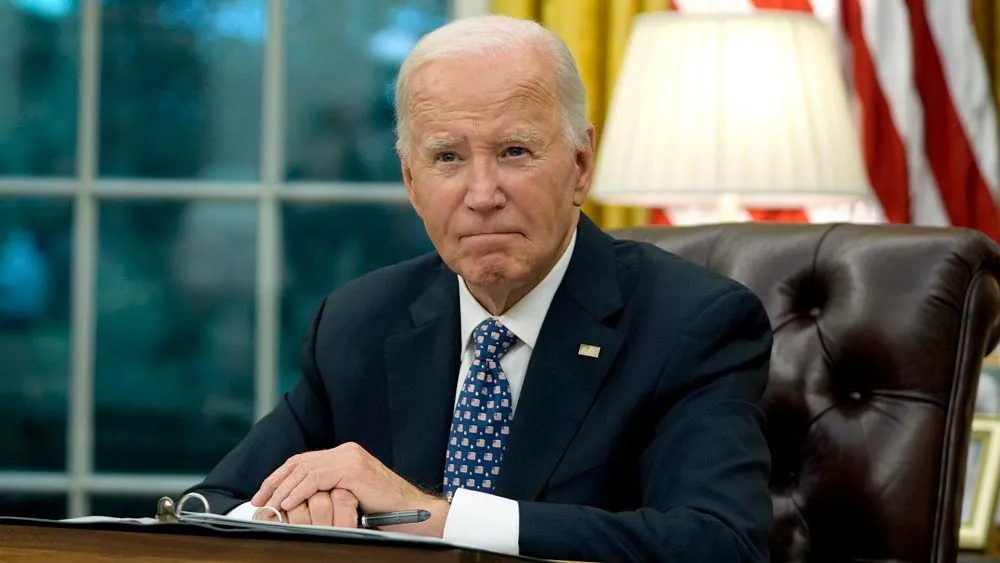August 1, 2022
Trevor Project Leader's Past Work for Opioid Companies Comes to Light
Kilian Melloy READ TIME: 3 MIN.
Amit Paley, the executive director of the Trevor Project, consulted with Pharma company Purdue on how to salvage its reputation as the U.S. opioid epidemic raged, reports say. With those revelations, there are calls for Paley to step down from his role at the suicide prevention group.
"As a rising associate partner at the global corporate consulting firm McKinsey & Co., Amit Paley worked on projects with the goal of increasing opioid sales and helping to boost Purdue Pharma's brand – even after the devastating effects of the opioid crisis, with Purdue as a key player, had become clear," Teen Vogue reported.
Paley "had worked closely with Purdue before and seemed eager to do so again," HuffPost detailed. "So, on a Friday evening in June, Paley scrambled to come up with a list of past examples of how companies selling dangerous products had reduced risk in order to avoid liability and salvaged their reputations with an outraged public."
Saying that "By the time of Paley's work with Purdue, the opioid epidemic and its deadly toll were undeniable," and that Purdue's "aggressive marketing of OxyContin was widely blamed by experts for creating a generation of people addicted to opioids," HuffPost explained that "Paley collaborated with Purdue executives over a period of four or five weeks on a strategic 10-year plan to boost the sales of opioids and other Purdue products."
"Later, as McKinsey competed to handle data analysis for Purdue, his team suggested ways to use data to support Purdue's sales goals and undermine its critics," HuffPost said.
The following year, Paley took the lead at the Trevor Project.
"Under Paley, the organization has overseen the launch of a 24/7 digital crisis service, a six-fold increase in the number of young people it serves, and the start of a global launch outside the United States," HuffPost noted.
But the opioid crisis had a direct impact on the very demographic the Trevor Project was created to serve – LGBTQ+ youth. Teen Vogue reported that some staffers at the organization see Paley's position with the organization as "hypocritical" given his work for Purdue, "especially since a report released by the Trevor Project found misuse of prescription drugs to be associated with a threefold increase in suicide attempts in the LGBTQ+ population."
Paley responded in statements to the press, as well as in an internal memo to Trevor Project staffers in which he said, "If I knew then what I know now, I would not have agreed to do any consulting work for [Purdue] and I regret that I did," Teen Vogue reported.
Paley does have advocates on the organization's board, according to Teen Vogue, including chairperson Gina Muñoz.
Paley's memo to staff included comments from Muñoz, who expressed "full confidence" in Paley and said, "As the Trevor Project grows and increases our impact for LGBTQ youth, we know that media and external attacks on the organization, its leaders, and staff will only increase, especially in these incredibly polarizing times."
But some Trevor Project staffers expressed skepticism. One recalled "carrying Narcan in my purse" in 2016, "trying to figure out how to help people visibly overdosing in my city. To say he didn't know in 2016, that's disgusting."
Another "cited the CEO's background as an investigative journalist whose work was once nominated for a Pulitzer Prize," the article added. "You're going to tell me a former journalist nominated for a Pulitzer had no idea about the opioid crisis?" that staffer said. "Come on."
A third said: "The first thing you learn in suicide prevention is removing the means and he was out there pushing the means."
Morale at the organization "is grim" in the wake of the revelations, according to one staffer who spoke with Teen Vogue.
The magazine also noted "a growing list of internal concerns about his leadership," with "multiple sources" indicating that "Paley seems to be focused on numerical growth and scale as CEO of the Trevor Project, which they feel sometimes comes at the expense of the actual quality of service."
One major cause for concern: The group's use, since 2020, of a chat platform that enables volunteers to "carry on multiple conversations with young people simultaneously," raising the possibility of "'misreading something someone said and sending an inappropriate response,' 'sometimes address[ing] youth by the wrong name'... and slower response times."
"According to one source, even after being made aware of these concerns, Paley continued with his push for volunteers to use Multichat," Teen Vogue detailed.
Some fear the scandal could pose an existential threat for the organization.
"It's a service I wish I had as a queer teen," one longtime staffer told Teen Vogue. "My biggest fear is it won't exist" to serve LGBTQ+ youth in crisis in the future.
Kilian Melloy serves as EDGE Media Network's Associate Arts Editor and Staff Contributor. His professional memberships include the National Lesbian & Gay Journalists Association, the Boston Online Film Critics Association, The Gay and Lesbian Entertainment Critics Association, and the Boston Theater Critics Association's Elliot Norton Awards Committee.







